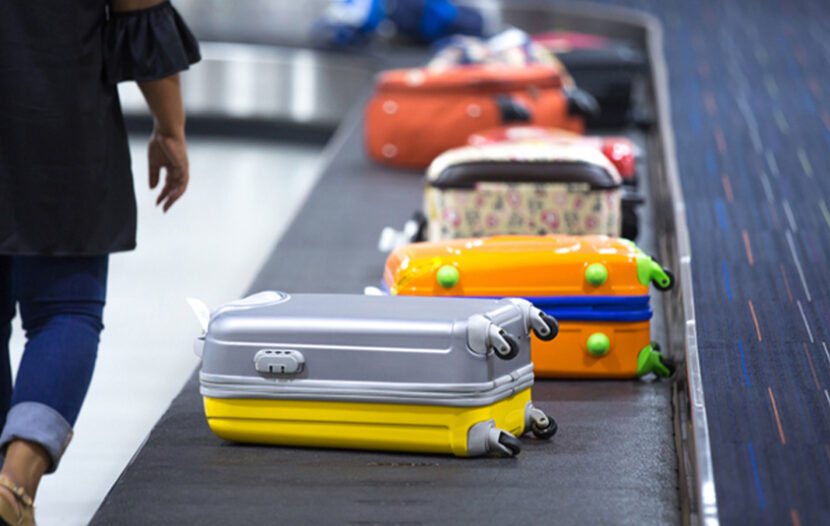OTTAWA — Canadian airline executives in the hot seat over carry-on bag fees say the federal government needs toreform this country’s aviation system if it wants travel to become more affordable.
The CEOs of Air Canada and WestJet appeared before a parliamentary committee Friday to answer questions about their recent decisions to introduce carry-on bag fees for travellers.
Air Transat and Porter Airlines also testified Friday before the standing committee on transport, infrastructure and communities.
The executives faced tough questions from parliamentarians, who summoned them to testify following Air Canada’s announcement earlier this month that customers paying a basic fare can only bring on a personal item and will have to check carry-on bags for a fee.
Air Canada’s move follows an earlier decision by WestJet to introduce an “UltraBasic” fare class that allows passengers to carry no more than a laptop bag or small backpack on board.
The developments are part of an ongoing trend in the aviation sector, which has seen airlines rely increasingly on ancillary fees for formerly bundled services that range from checked bags to on-board snacks and WiFi access.
Committee members on Friday challenged the airline CEOs about the layers of add-on fees, arguing they are making air travel increasingly unaffordable for Canadians.
“Do you truly believe this is acceptable at a time when Canadians’ pocketbooks are hurting?” said Liberal MP Angelo Iacono.
Another Liberal MP, Vance Badawey, challenged WestJet — a private company that does not publicly release its financial information — to open up its books and disclose its profit margins.
“Because at the end of the day, that’s why we’re here right now,” Badawey said. “We’re here for affordability for the passengers.”
But the airline executives said by offering passengers a choice of fare categories with different service levels, they are actually making travel cheaper for Canadians.
“We all probably agree that competition is the best way to ensure the best service and prices for Canadians. It does that by allowing customers to compare products and letting the market decide which will succeed,” Air Canada CEO Michael Rousseau told the committee.
“We (Air Canada) must ensure our fares are comparable to those of our competitors while offering travellers the flexibility to pay only for the services they value.”
WestJet CEO Alexis von Hoensbroech said 1.2 million Canadians have chosen the airline’s UltraBasic fare since it was introduced in June, resulting in lowered travel costs as that fare is on average 14 per cent lower than WestJet’s next-cheapest option.
“This is savings that are important in a time where there’s an affordability crisis,” von Hoensbroech said in an interview Friday morning.
“So I think we actually do something that’s good … And I do understand the perception that is out there, but I think it’s also important to share the facts.”
Von Hoensbroech said it’s easy for politicians to be “bashing airlines” because the affordability crisis is real. But he said if the federal government really wants to lower the costs of air travel, significant reforms to the system are needed.
He said air travel in Canada is among the most expensive globally, due in part to government policies and third-party fees. Navigation fees, security charges, airport improvement fees and other taxes and fees can add up to $100 to the price of a ticket, von Hoensbroech said.
He said the government needs to freeze hikes in third-party fees and charges to allow Canada’s aviation sector to compete globally.
He also said the federal government should cease charging rent to airports for the land they sit on, allowing airports to reinvest these funds into infrastructure and services instead.
But passenger rights advocate Gabor Lukacs, who also testified before the parliamentary committee, said he worries taxpayers will end up footing the bill if the government moves to freeze the amount air travellers pay for services like navigation and security.
“There is no free lunch. For those airline executives who say some of these fees should be lowered, as a passenger, I ask, who’s going to pay for it?” Lukacs said.
Federal Transport Minister Anita Anand has also expressed displeasure with the carry-on bag fees. She said in an interview Friday that she spoke to some of the airline executives about the issue earlier this week.
“What I stressed was the importance of taking into account the fact that Canadians work hard and save up to travel, and they expect excellent service, not extra fees,” Anand said.
“I also specifically raised the importance of transparency and accountability with the CEOs of Air Canada and WestJet.”

